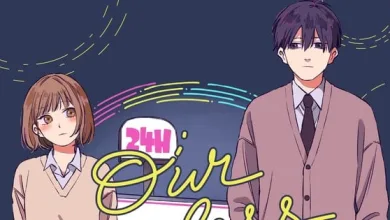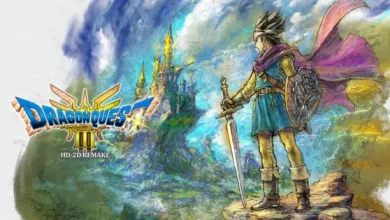Hajime no Ippo Episodes 1-25 Anime Series Review – Review

Hajime no Ippo is a classic in the sports anime world. I cannot think of a show that perfectly embodies what we now consider the iconic underdog story more than Hajime no Ippo. Years ago, I watched this show on a whim as I was interested in learning about boxing at the time, and it quickly rose the ranks to become one of my favorite anime of all time. However, my personal bias notwithstanding, is this still a show I can recommend to people today? Over 20 years since its initial airing, is Hajime no Ippo a show that is only good as a legacy title, or is there still a lot that it can offer in this day and age where sports anime are so readily prevalent?
Hajime no Ippo is an impressive slow burn. It takes a few episodes for our main character, Ippo, to genuinely have his first fight, and these first 25 episodes are all about introducing Ippo to the boxing world. The twenty-fifth episode does end at the finals of a junior tournament, a staple of sports anime. Still, the first ten to twelve episodes are all about the training necessary to call yourself a boxer in the first place. It takes a while before Ippo gets his license to fight in the ring. In many ways, I respect that pacing because it arguably makes the show feel much more grounded. Much like a gradual growth to conditioning yourself to call yourself a boxer, Hajime no Ippo presents a gradual, realistic growth in its story.
Not every episode carries the same emotional weight or importance, but something is always happening. In every episode, we learn more about our characters, the world of professional boxing, and the techniques necessary to survive in the ring. Everything is broken down with explicit detail, from what a jab is to the pros and cons of different boxing styles. If you were ever interested in boxing like I was, I would argue that Hajime no Ippo is a rather simple introductory course into that world. Some elements are dated and exaggerated by today’s standards, but it is an effective jumping-off point. Everything inside the ring is treated with a heavy sense of seriousness.
We have to remember that boxing is a hazardous and intense sport. People have died and suffered long-term damage from its effects. While the show doesn’t go into much detail regarding the drawbacks to pursuing this as a career (at least not at this point in the show), you feel the weight of every step taken and every punch that connects. For a show that came out over twenty years ago, the animation and direction do a fantastic job of communicating a sense of flow. When the camera zooms out, it doesn’t look like a real-life boxing match, but the intensity feels real. Surprisingly, there weren’t that many recycled moments of animation, and when there were, the production masked them surprisingly well. We get intense close-ups of faces and stylistic still shots that are cut fast enough to portray a compelling sense of speed, and the art style feels very indicative of the time in the best way. All the characters have these extra layers of shading and pencil scratches that make them look like they have been through one fight after another. If a character gets punched in the face, their eyes look properly swollen, and in the few instances we get blood, it pops in that incredibly bright way we don’t really see today.
Much like how the designs indicate the time, you can argue a lot of the character tropes are, as well. We have Ippo, who is supposed to come off as very innocent and trustworthy with a very round face and soft features. Characters that display an apparent aggressive side have bushy eyebrows or more angular noses and jaws. The voice acting is also delightfully cheesy and over the top to highlight this, although there are a few moments where the dub doesn’t hit as hard as the original Japanese. When you consider the time that the dub was recorded, a few performances hold up surprisingly well, like Steve Staley as Ippo and Richard Epcar as Kamogawa. If the show ever were to get a redub, it would be great if some of these actors came back. But other characters sound too cartoonishly exaggerated in a way that doesn’t always sound intentional. Takamura might have the worst of it in the dub. No offense to Eddie Frierson, but his performance comes off as more like a smarmy gangster than the big brute he is supposed to sound like.
While quite a few one-dimensional side characters mostly serve as comedic relief, I was shocked at how much nuance there was to the main cast in these first twenty-five episodes. Ippo is a bullied kid who wants to get stronger to understand what it means to be strong. Takamura comes off as a bullying older brother who genuinely tries to look after those under him in between all his grandstanding. Coach Kamogawa is the strict yet surprisingly endearing father figure to all of his adoptive idiot sons, and Miyata is the cool rival who has immature moments. There’s so much testosterone in the show, but it also comes off as incredibly wholesome. Ippo is a naïve kid learning more about the world through boxing, and I like that the writing reflects the good and bad of that world. I even genuinely felt for some of the opponents Ippo fought, as many entered the ring with baggage.
Finally, the soundtrack is hands down one of the most timeless parts of this show. It’s Tsuneo Imahori coming to the table with his iconic rustic guitar and eclectic beats. All you have to do is listen to the commercial break stinger, and you will already get a sense of exactly what kind of soundtrack you’re getting yourself into. This is the perfect soundtrack to work out to and practice your footwork around, with some tracks even building up intensity to the tempo of a lot of the fights themselves. It’s a surprisingly dynamic soundtrack that sounds amazing on its own and makes most scenes feel even more intense.
So yes, I think there is still a lot of merit in revisiting Hajime no Ippo so many years later, or at least this first third of the original season. These episodes do a fantastic job of establishing the sport and our characters. The pacing is slower than most other sports anime, and I can see that as a turn-off for some people. But the sense of progression feels so natural that marathoning it is easy. This is the start of a journey where you get to appreciate all the little things that eventually build up into something extraordinary. Granted, we end before we arguably get to some of the more intense moments of the series, but even as a foundational setup, I still think there is a lot to learn from this quintessential underdog anime.
Source link
#Hajime #Ippo #Episodes #Anime #Series #Review #Review


